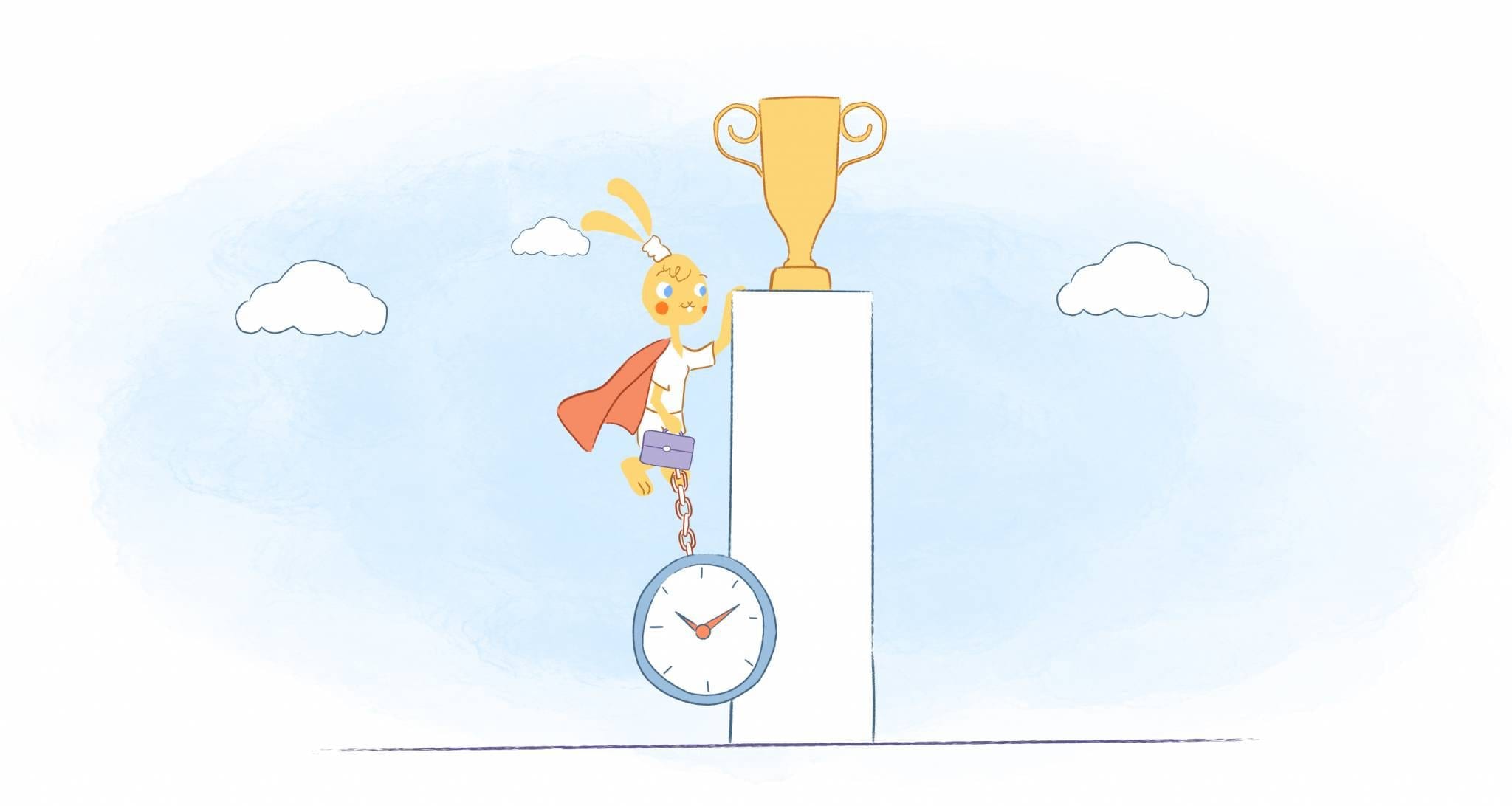

Take a moment to imagine yourself with sun-kissed skin, the gentle sound of waves, and a complete getaway from the daily grind. That’s the classic image of spring break, isn’t it? What if I told you there’s another kind of break that’s just as valuable yet often overlooked? It’s sort of like a “spring break for your mind.” In other words, it’s a chance to refuel, reset, and stave off burnout.
Why is this important? Every day, we’re bombarded with information, demands, and expectations as the world spins faster and faster. We’re told to “hustle,” “grind,” and “always be on.” But what about our minds? They’re not machines. Instead, they are complex, delicate systems that require attention and care. By ignoring their needs, we risk exhaustion and injury.
Understanding the Shadow of Burnout
It’s time to get real about burnout. It’s more than just a little tired after a long week. Experiencing it is like being overwhelmed by a deep and pervasive exhaustion. You feel constantly depleted as if your emotional batteries are always low. As a result, you may snap at loved ones, have trouble focusing, or even experience physical symptoms like headaches.
Yet, according to SHRM’s Employee Mental Health in 2024 Research Series, 44 percent of 1,405 U.S. employees feel burned out at work, 45 percent feel emotionally drained from work, and 51 percent feel “used up” at the end of the day.
Why do you do this to yourself? We often think pushing forward is the only way to succeed. However, a burnt-out mind is an inefficient mind. It causes creativity to decline, decision-making to become clouded, and productivity to plummet. The result is like trying to drive a car with a flat tire — you won’t get far.
Why Your Brain Desperately Needs a Break
Think of your brain as a muscle. In the same way your biceps need rest after a workout, your brain needs time to rest after intense mental strain. Constant stress can actually shrink your prefrontal cortex. This is the part of your brain responsible for solving problems and thinking critically. Your brain’s command center is becoming smaller and less effective.
Meanwhile, the amygdala in the brain, responsible for fear and anxiety, goes into overdrive. In other words, your brain seems to constantly be blaring alarms, even when no danger is present.
As such, a mental break isn’t a luxury; it’s a necessity. By doing so, you reset your cognitive functions, improve your emotional resilience, and boost your overall well-being. When your mind is well-rested, you will be more creative, focused, and happier.
How to Craft Your Personal “Spring Break for Your Mind”
To relax your mind, you don’t need a lavish getaway like The White Lous. It only takes a few small, consistent actions to make a big difference. To recharge, let’s explore some practical suggestions.
1. Unplug and disconnect.
We are constantly distracted by our phones, which are like mini-distraction machines.
After all, our brains crave dopamine throughout the day, which triggers the habit of constantly checking our phones.
But what if notifications didn’t dictate your every move? Eventually, limiting distractions and maintaining mindfulness foster focus, reduce anxiety, promote sleep, and strengthen social connections.
To begin with, try setting up tech-free hours or even a digital detox day. Also, choose alternatives such as reading a book, walking, or simply enjoying the silence instead of picking up your phone. You could say it’s like giving your brain a much-needed spa treatment.
2. Embrace the power of mindfulness.
Being mindful means being fully present in the moment. Imagine spending a few minutes each day simply breathing, observing your thoughts without judgment.
You can guide yourself through simple meditation exercises using apps such as Headspace or Calm. This will train your brain to be calmer and more focused.
3. Unleash your inner artist.
Having a creative outlet during downtime is a fantastic stress reliever. Try painting, writing, playing music, or even doodling.
But, remember. The point is not to create a masterpiece; it’s to engage in an activity that lets you express yourself and escape daily stresses. This gives your brain a chance to play.
4. Step into nature’s healing power.
There is nothing like nature to soothe the soul. Imagine walking through a park, feeling the sun on your skin, and breathing in the fresh air.
Even a short 10-minute walk can reduce stress levels and boost mood. In a way, it’s like giving your brain a breath of fresh air.
5. Prioritize the sanctuary of sleep.
Your brain resets itself when you sleep. For this reason, ensuring you get a good night’s sleep requires getting into bed consistently, creating a peaceful environment, and allowing yourself to drift off into a deep, restful sleep. It’s like tuning up your brain every night.
6. Connect with your tribe.
For mental well-being, human connection is essential. Take a moment to reflect on the last time you shared a heartfelt conversation with a friend, shared a laugh, or simply enjoyed the company of your loved ones. It’s like a warm hug for your brain.
7. Take mini-mental vacations.
You can make a difference in your life even if you get away for a few minutes. Throughout the day, close your eyes and visualize a peaceful scene, listen to soothing music, or watch a funny video. It’s like taking a quick trip to paradise for your brain.
8. Set healthy boundaries.
Choosing to say ‘no’ is not selfish; it is self-care. Consider establishing clear boundaries between work and personal life, delegating tasks, and prioritizing your own wellbeing. Think of it as building a protective shield around your mental energy.
9. Move your body and free your mind.
Exercise boosts your mood and reduces stress. It releases endorphins, those feel-good chemicals. Try finding an activity you enjoy, whether it’s yoga, dancing, or simply walking. Whatever physical activity you choose, you’ll find that it boosts your mood naturally.
10. Reflect and recharge.
Don’t forget to check in with yourself from time to time. Whether you journal, meditate, or simply sit in silence, think about the thoughts and feelings you are experiencing. In a way, it’s like giving your brain a moment of quiet reflection.
Your Mind Matters: Make It a Priority
Burning out is not a badge of honor; it’s a warning sign. Your mind is telling you it needs a break. So, just like any important appointment, make mental breaks a priority. As with your body, your mind deserves care and attention.
How will you spend your next “spring break for your mind”? Make a plan today, and give yourself permission to rest, recharge, and truly thrive. It is essential to your well-being.
FAQs
What exactly is burnout, and how do I know if I’m experiencing it?
Burnout is a state of physical, mental, and emotional exhaustion caused by prolonged or excessive stress. It’s more than just feeling tired; it’s a deep sense of depletion that impacts all aspects of your life. There are several signs of burnout, including;
- Emotional exhaustion. Lacking motivation, feeling drained and overwhelmed.
- Depersonalization. Being cynical or negative towards your work and colleagues.
- Reduced personal accomplishments. You doubt your abilities and feel ineffective.
- Physical symptoms. Changes in appetite, headaches, fatigue, sleep disturbances.
- Increased irritability and anxiety. Having a constant feeling of anxiety or overwhelm.
Rest and recovery should be a priority if several of these symptoms are present.
How often should I take time to recharge?
Depending on your needs and stress levels, you may need to recharge more frequently. However, breaks should be incorporated into your routine regularly.
- Daily micro-breaks. Take a short break every few hours to stretch, breathe, or practice mindfulness. It only takes a few minutes to make a difference.
- Weekly mini-recharges. Every week, take time to unwind and de-stress. It could be anything from enjoying nature to taking up a hobby.
- Regular vacations. Throughout the year, schedule longer breaks to recharge. You should aim to take a few days off every few months and a longer vacation once a year.
- Listen to your body. You don’t have to wait until your vacation to feel overwhelmed. Give yourself a break.
What are some effective ways to recharge during short breaks?
It is possible to benefit from even short breaks. The following are some ideas;
- Mindful breathing. Focus on the rhythm of your breath while taking a few deep breaths.
- Stretching or yoga. It is possible to release tension and improve circulation by performing gentle movements.
- Nature break. Take a few minutes to breathe some fresh air and enjoy some sunlight.
- Listen to music. Let the music wash away your stress as you listen to your favorite song.
- Hydrate and snack. You may want to refuel your body with water and healthy snacks.
- Disconnect. Put your digital devices down and walk away from your screens.
How can I effectively disconnect from work during my time off?
It can be challenging to disconnect from work nowadays. However, listed below are some strategies:
- Set boundaries. Clearly define the boundaries between work and personal time. When you’re not at work, turn off your work notifications and refrain from checking your emails.
- Communicate your availability. During your time off, inform your colleagues that you will be unavailable.
- Plan activities. Take advantage of your time off by engaging in activities you enjoy. As a result, you will be more engaged and less tempted to check your work emails.
- Create an “out of office” message. If you will be out of the office, send an informative “Out of Office” message that states when you will return and who to contact if you need assistance.
- Physically remove yourself. Leave your usual work location, such as the office or home, when possible.
How can I create a more sustainable work-life balance?
To achieve a sustainable work-life balance, you must continue to put effort and commitment into it. To help you, here are some tips;
- Prioritize self-care. Don’t forget to nourish your mind, body, and soul with activities you enjoy.
- Set realistic goals. Be careful not to overcommit yourself and say no to tasks that aren’t important to you.
- Delegate tasks. If you can, ask for help and delegate tasks.
- Practice time management. To minimize stress and maximize productivity, use time management techniques.
- Create a supportive environment. Be surrounded by people who are supportive of your well-being.
- Re-evaluate regularly. As life changes, so should your work-life balance. The same thing may not work today as it did a year ago.
Image Credit: Antoni Shkraba; Pexels











John Rampton
John’s goal in life is to make people’s lives much more productive. Upping productivity allows us to spend more time doing the things we enjoy most. John was recently recognized by Entrepreneur Magazine as being one of the top marketers in the World. John is co-founder and CEO of Calendar.